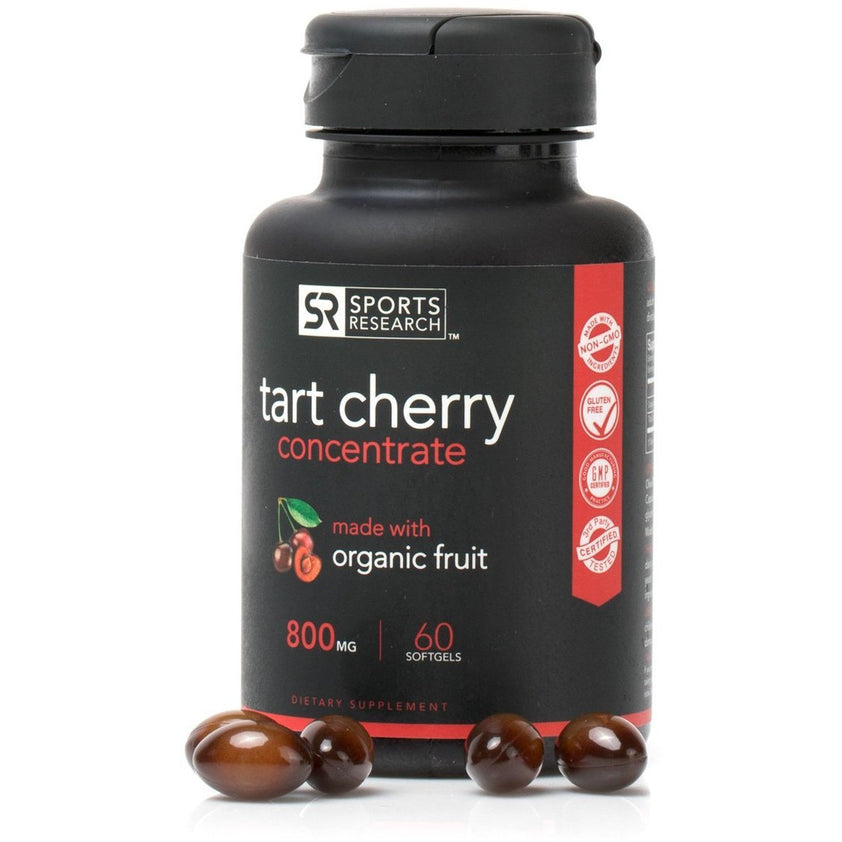

A systematic review and meta-analysis published in 2022 suggests that, based on seven trials, cherry juice consumption does not lead to a significant reduction of systolic or diastolic blood pressure - so more research is needed to make a clear determination. However, some studies did not find an effect on blood pressure from cherry juice consumption. A study published in Nutrients found that drinking 480 milliliters of tart cherry juice for 12 weeks reduced systolic blood pressure levels.

Research indicates that cherry juice’s effective anti-inflammatory effects allow it to reduce blood pressure and LDL cholesterol levels, thereby decreasing the risk of cardiovascular disease. People who suffer from joint pain, arthritis, gout and any other inflammation-induced pain disorder may find relief from tart cherry juice consumption. The antioxidant and anti-inflammatory effects of tart cherry juice make it a useful remedy for pain relief for both acute and chronic pain disorders. Because of its anti-inflammatory properties, cherry juice is often used to alleviate pain and swelling, promote faster muscle recovery after exercise, and relieve joint stiffness. Reduces Inflammationĭrinking tart cherry juice has been proven in studies to reduce inflammation biomarkers that are commonly seen in people with chronic diseases. A study published in the European Journal of Nutrition found that when 20 volunteers consumed either tart cherry juice concentrate or placebo for seven days, those consuming cherry juice had significantly higher melatonin levels.Īdditionally, participants in the cherry juice group experienced significant increases in time in bed, total sleep time and sleep efficiency.Ī serving of tart cherry juice also provides about 30 milligrams of magnesium, an essential mineral that helps enhance sleep quality and improve insomnia. Several studies show a positive relationship between tart cherry juice consumption and better sleep, which is largely attributed to the juice’s effects on melatonin levels. Research suggests that consuming cherry juice has the following potential health benefits: 1. Tart cherry juice contains antioxidants and an impressive lineup of nutrients, including copper, potassium, manganese, magnesium, iron and vitamin A. It’s considered one of the top healthy drinks and also promotes better sleep and may reduce blood pressure. Drinking tart cherry juice has become more and more popular as a natural remedy for issues related to inflammation, such as pain and muscle recovery. Tart cherries are typically consumed juiced, frozen or dried for their impressive nutrition profile and health benefits. Not the same as the sweet cherries you snack on in the summer months, tart cherries are smaller and a bright red color, and they’re used to make one of the healthiest drinks out there. The Illinois Department of Public Health will continue reporting COVID-19 vaccination data, deaths, lab data, genomic sequencing, waste water surveillance data and the number of people with COVID-19 admitted to the hospital from emergency departments.If you’ve been paying attention to the therapeutic aisle at your local health food store, you may have noticed tart cherry juice on the shelf. Illinois’ Blue Cross Blue Shield will no longer cover at-home COVID-19 testing, the Chicago Tribune reported in April, and coverage for polymerase chain reaction, or PCR, tests and Paxlovid will depend on each individual’s plan. Department of Health and Human Services has announced a program to provide people who do not have health insurance with access to COVID-19 vaccines and treatments.Īccess to COVID-19 testing, especially at-home options, may change depending on your health insurance provider. Access to these will “ generally not be affected,” according to the Illinois Department of Public Health. Hospitals are no longer required to report the number of COVID-19 patients in intensive care units or on ventilators, so that information will also become unavailable.ĬOVID-19 vaccinations and treatments, such as Paxlovid, will shift from a public health care model to a private insurance model. Test positivity rates will also no longer be available in Illinois.


 0 kommentar(er)
0 kommentar(er)
